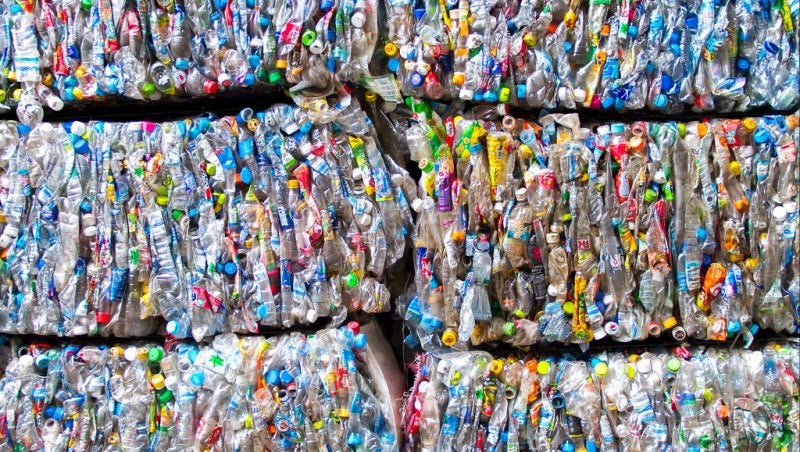
Researchers from the University of Bath and the University of Birmingham have developed a new way of recycling plant-based plastics instead of letting them rot in landfills.
The new method converts plastics into their constituent chemical molecules, potentially enabling products to be recycled repeatedly without reducing the quality.
The researchers used lower temperatures and more environmentally friendly catalysts compared with earlier methods.
University of Bath centre for sustainable and circular technologies professor Matthew Jones said: “Most plastic is currently recycled using mechanical methods, where they are chipped into granules and melted down before being moulded into something new.
“The problem is, melting plastic changes its properties and reduces the quality, which limits the range of products in which it can be used.
“Our method of chemical recycling overcomes this problem by breaking down plastic polymers into their chemical building blocks so they can be used all over again to make virgin plastic without losing any properties.”
The researchers have tested the method using plant-based polylactic acid (PLA), developed from starch or crop waste, which they used in biodegradable food packaging and disposable cutlery and cups.
The team has also started trialling a similar process for recycling polyethene terephthalate (PET).
University of Bath’s Paul McKeown said: “There is no single solution to the problem of plastic waste. The approach has to be a combination of reducing, reusing and recycling.
“Our method of chemical recycling could allow carbon to be recycled indefinitely, creating a circular economy rather than digging more up from the ground in the form of fossil fuels or releasing it into the atmosphere as a greenhouse gas.”
The partners at the University of Birmingham are now working to scale up the system to produce larger quantities of starting chemicals.



